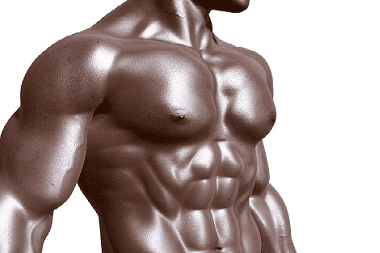Fitness and health >>>> What affects muscle growth?
What affects muscle growth?

Those who play sports not for the sake of losing weight, but for building muscle mass, always wonder what affects muscle growth to a greater or lesser extent.
To understand what muscle growth is, let's turn to anatomy. The muscles themselves do not grow, they increase the already existing size due to the depot of glycogen surrounding the muscle fibers. For muscle tissue, training is an injury that causes the connective tissue located in the muscle fiber region to expand, thereby compensating for the injured muscle fiber.
The glycogen depot is necessary for energy expenditure at the moments of muscle tissue work. Glycogen stores are formed from carbohydrates ingested with food. Also, the growth of muscle tissue is facilitated by the hormone testosterone, a sufficient amount of which should be produced from fats obtained by the body during meals. The role of proteins is of secondary importance, although they are also the structural elements of muscle tissue.
Muscle tissue grows (recovers from resistance-related injuries) after exercise, not during exercise. It takes at least three to four hours for the metabolic and recovery processes to begin. The growth (recovery) process is completely completed in one and a half to two days. It is for this reason that it is more correct to repeat training every other day, and not every day.
For the growth of muscle mass, the athlete's nutrition is important. The calorie content of an athlete's food should be 20% more than that of an ordinary person.
The diet should contain not only protein food, but primarily carbohydrates, since it is they that energize the muscles. The athlete's diet should be based on carbohydrates, fats and proteins. Mono diets will not allow you to achieve the effect of muscle growth.

Read

Read



























